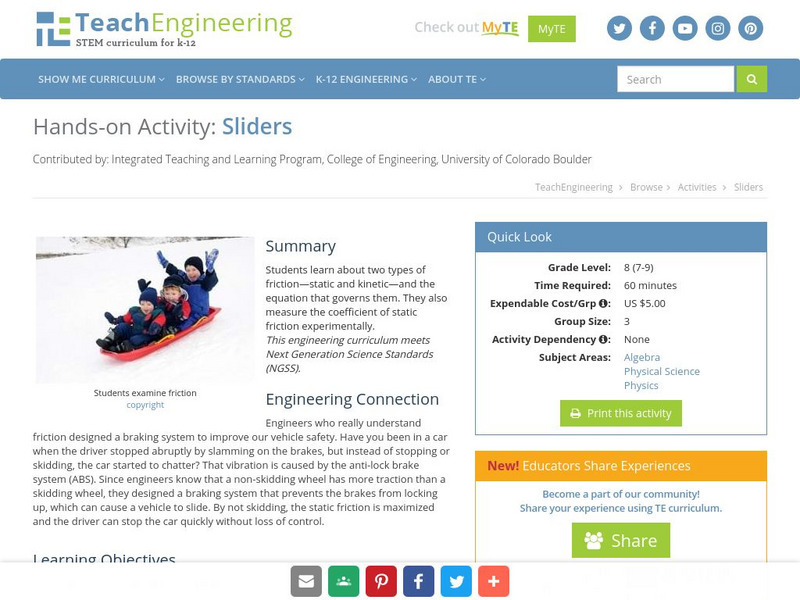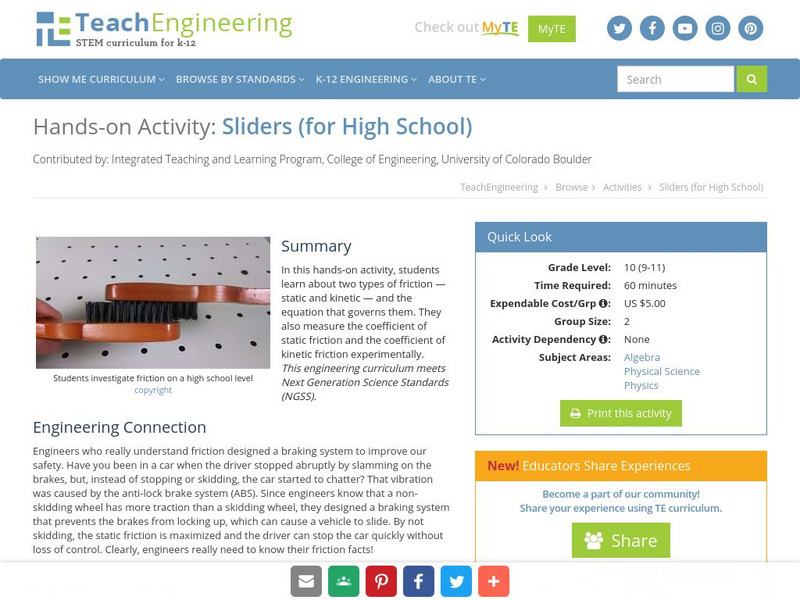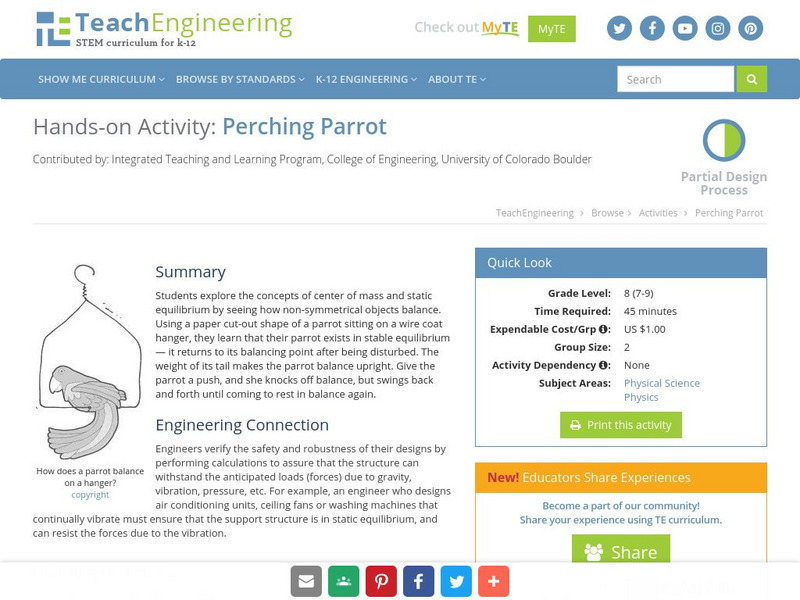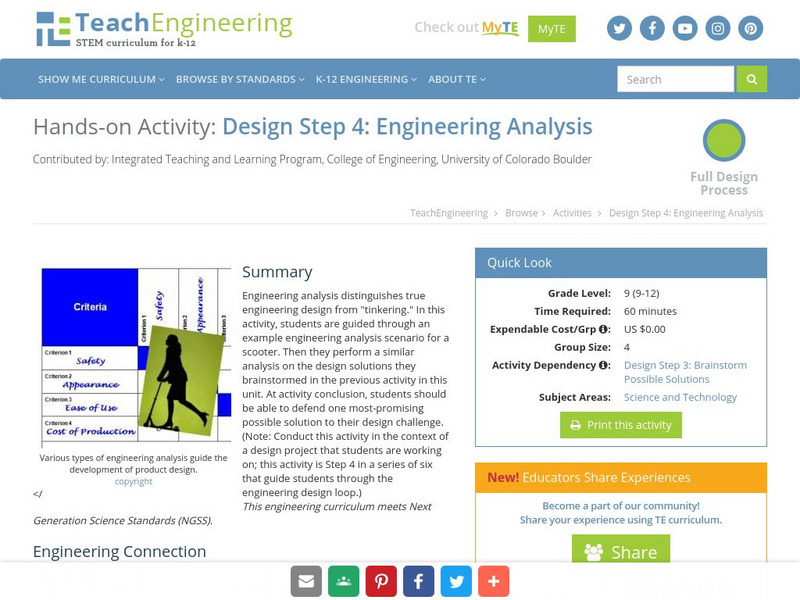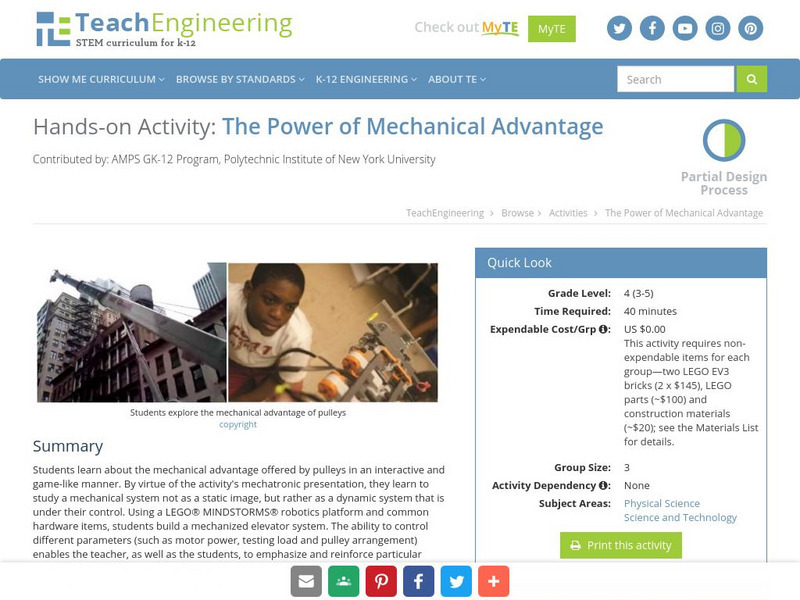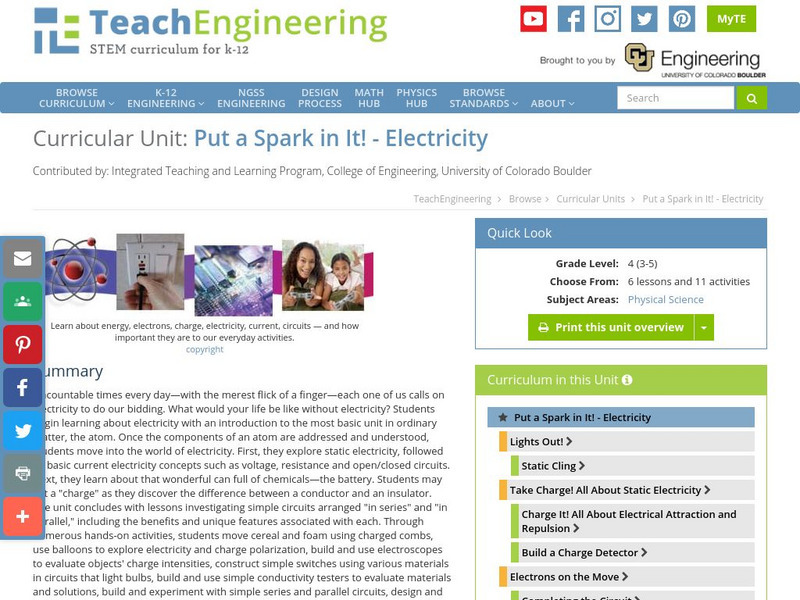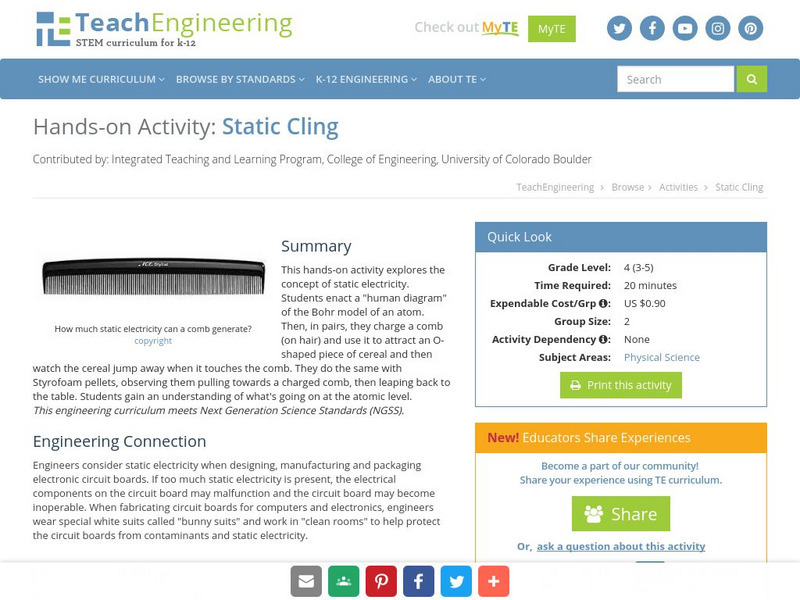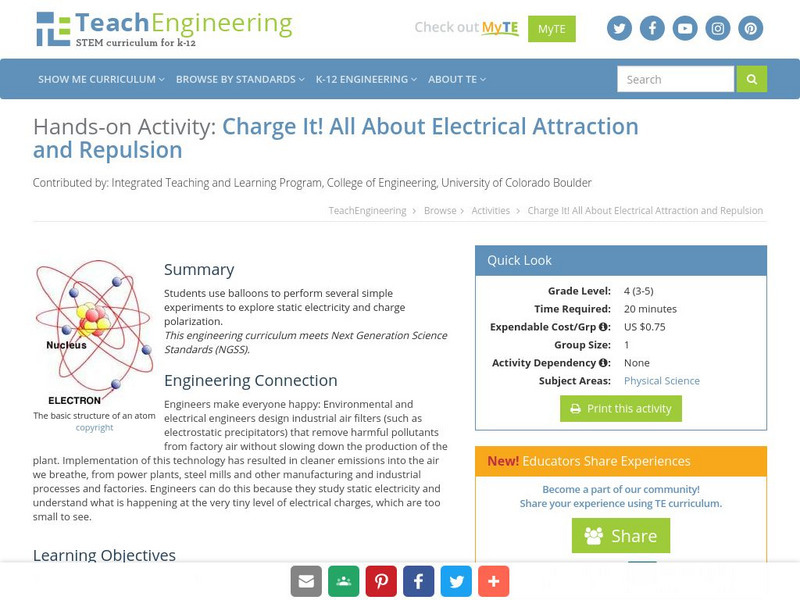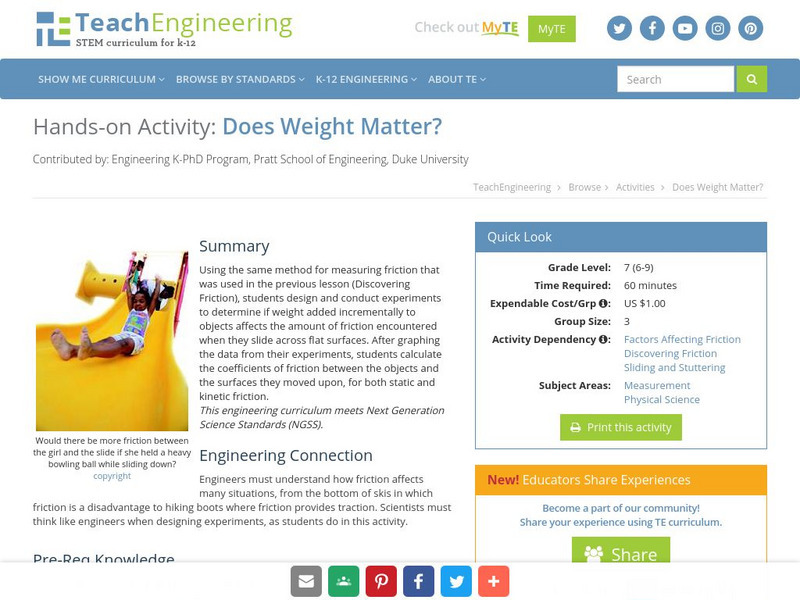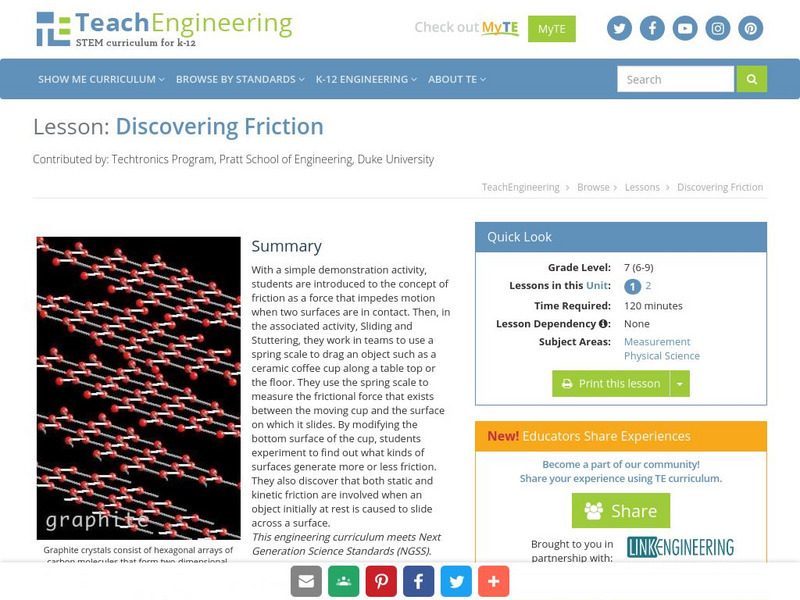Curated OER
Air Temperature and Kinetic Energy
Students use a NASA website do activities which help them better explain how air temperature and kinetic energy are related to aircraft propulsion.
Alabama Learning Exchange
Researching Hurricanes with Technology
Students explain the components that make up a hurricane.
Curated OER
Jupiter's Weather Forecast
Students read information about Jupiter and the planet's weather. In this Jupiter weather lesson, students read information about Jupiter's weather. Students study a chart about the weather on Earth and Jupiter. Students read a weather...
Curated OER
Spelling List 20: Sight Words, Long /o/ Words, and Academic Vocabulary
In this spelling list worksheet, learners practice spelling words that are sight words, long o words, and vocabulary. Students practice spelling 21 words total.
Curated OER
Lab for Truss Design and Testing
Students design and build their own truss. In this physics lesson, students calculate the forces and maximum load. They complete a full scale diagram of their design.
Curated OER
RESISTANCE IS FUTILE
Students explore friction and use objects such as coins and marbles to study the concept.
TeachEngineering
Teach Engineering: Wide World of Gears
In an interactive and game-like manner, students learn about the mechanical advantage that is offered by gears. By virtue of the activity's mechatronics presentation, students learn to study a mechanical system as a dynamic system under...
New York University
New York Univ.: Tandon School of Engineering: Static and Kinetic Friction [Ppt]
Explains what static and kinetic friction are and discusses the coefficient of friction for different situations. Presents two simple lab experiments and real-life examples of friction in action.
TeachEngineering
Teach Engineering: Sliders
In this hands-on activity, students learn about two types of friction - static and kinetic - and the equation that governs them. They also measure the coefficient of static friction experimentally.
TeachEngineering
Teach Engineering: Sliders (For High School)
In this hands-on activity, students learn about two types of friction - static and kinetic - and the equation that governs them. They also measure the coefficient of static friction and the coefficient of kinetic friction experimentally.
TeachEngineering
Teach Engineering: Perching Parrot
Students explore the concepts of center of mass and static equilibrium by seeing how non-symmetrical objects balance. Using a paper cut-out shape of a parrot sitting on a wire coat hanger, they learn that their parrot exists in stable...
TeachEngineering
Teach Engineering: Sum It Up: An Introduction to Static Equilibrium
Students are introduced to static equilibrium by learning how forces and torques are balanced in a well-designed engineering structure. A tower crane is presented as a simplified two-dimensional case. Using Popsicle sticks and hot glue,...
TeachEngineering
Teach Engineering: Design Step 4: Engineering Analysis
Engineering analysis distinguishes true engineering design from "tinkering." In this activity, students are guided through an example engineering analysis scenario for a scooter. Then they perform a similar analysis on the design...
TeachEngineering
Teach Engineering: Watch Out for the Blind Spots
In this service-learning engineering project, students follow the steps of the engineering design process to design a hearing testing device. More specifically, they design a prototype machine that can be used to test the peripheral...
TeachEngineering
Teach Engineering: The Power of Mechanical Advantage
Students learn about the mechanical advantage offered by pulleys in an interactive and game-like manner. By virtue of the activity's mechatronic presentation, they learn to study a mechanical system not as a static image, but rather as a...
TeachEngineering
Teach Engineering: Put a Spark in It! Electricity
Uncountable times every day "with the merest flick of a finger"each one of us calls on electricity to do our bidding. What would your life be like without electricity? Students begin learning about electricity with an introduction to the...
TeachEngineering
Teach Engineering: Energy of Motion
By taking a look at the energy of motion all around us, students learn about the types of energy and their characteristics. They first learn about the two simplest forms of mechanical energy: kinetic and potential energy, as illustrated...
TeachEngineering
Teach Engineering: Static Cling
This hands-on activity explores the concept of static electricity. Students attract an O-shaped piece of cereal to a charged comb and watch the cereal jump away when it touches the comb. Students also observe Styrofoam pellets pulling...
TeachEngineering
Teach Engineering: Charge It!
Students use a balloon to perform several simple experiments to explore static electricity and charge polarization.
TeachEngineering
Teach Engineering: Does Weight Matter?
Using the same method for measuring friction that was used in the previous lesson (Discovering Friction), students design and conduct an experiment to determine if weight added incrementally to an object affects the amount of friction...
TeachEngineering
Teach Engineering: The Force of Friction
In the first of two lessons of this curricular unit, students are introduced to the concept of friction as a force that impedes motion when two surfaces are in contact. Student teams use spring scales to drag objects, such as a ceramic...
TeachEngineering
Teach Engineering: Discovering Friction
With a simple demonstration activity, students are introduced to the concept of friction as a force that impedes motion when two surfaces are in contact. Then, in the Associated Activity (Sliding and Stuttering), they work in teams to...
TeachEngineering
Teach Engineering: Passing the Bug
Students apply concepts of disease transmission to analyze infection data, either provided or created using Bluetooth-enabled Android devices. This data collection may include several cases, such as small static groups (representing...
TeachEngineering
Teach Engineering: Lights Out!
This lesson introduces the concept of electricity by asking students to imagine what their life would be like without electricity. Two main forms of electricity, static and current, are introduced. Students learn that electrons can move...
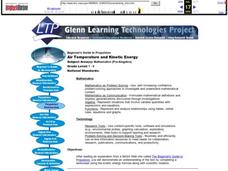




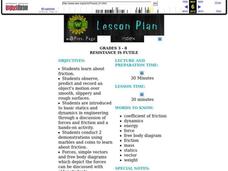

![New York Univ.: Tandon School of Engineering: Static and Kinetic Friction [Ppt] PPT New York Univ.: Tandon School of Engineering: Static and Kinetic Friction [Ppt] PPT](https://d15y2dacu3jp90.cloudfront.net/images/attachment_defaults/resource/large/FPO-knovation.png)
